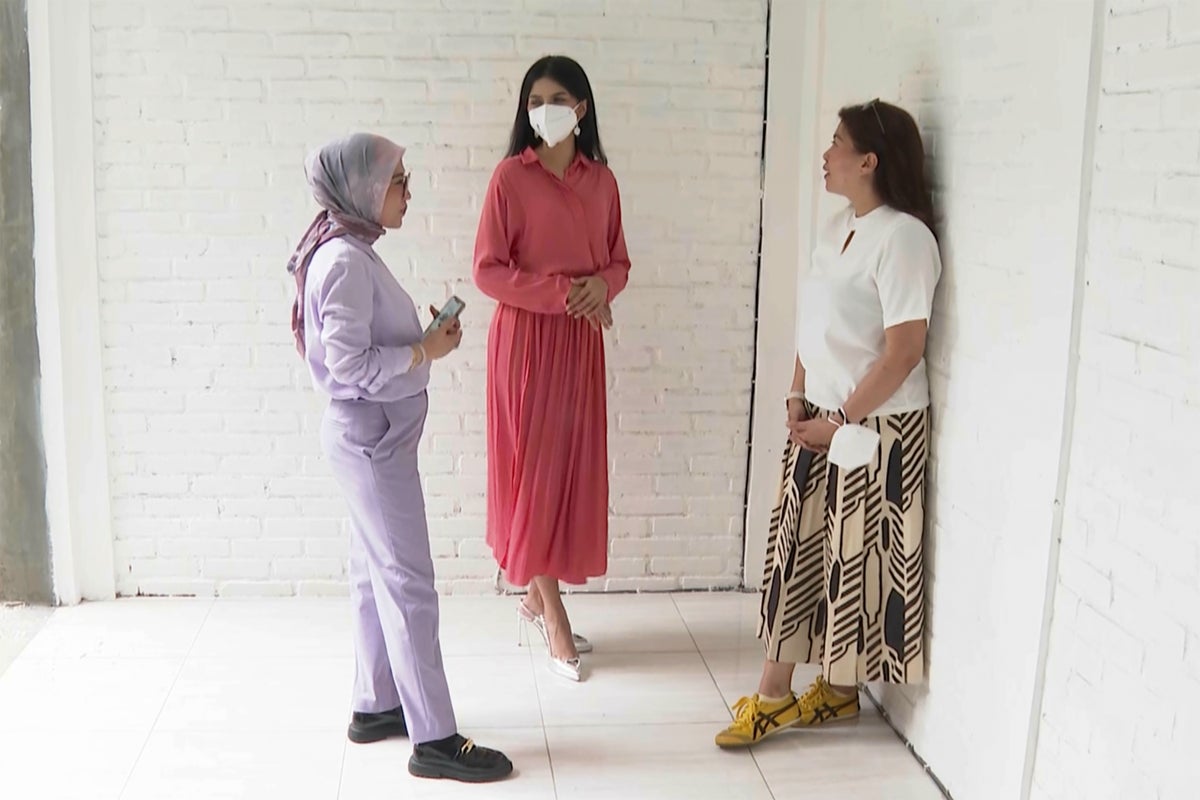
Six Miss Universe Indonesia contestants have claimed they were sexually harassed by the event’s organisers and have registered a police complaint against them.
The candidates of the Miss Universe Indonesia pageant said they were asked to remove their tops for “body checks” in a room full of 20 people, including men.
They also alleged they were then photographed topless, according to the lawyer of the contestants.
The attorney said the alleged sexual abuse took place two days before the finals of the beauty contest in capital Jakarta on 3 August.
The organisers allegedly told the contestants they were conducting these checks “to examine any scars, cellulite or tattoos on their bodies”.
One of the complainants said in a press conference that she was asked to pose inappropriately.
“I felt like I was being peeked on. I was very confused and uncomfortable,” said a woman whose face was blurred by broadcaster Kompas TV.
“I feel that my rights have been violated,” another contestant said.
“It has affected me mentally. I have had trouble sleeping,” she said.
The lawyer for the women also claimed several other contestants will come forward with allegations of sexual abuse.
Jakarta police spokesperson Trunoyudo Wisnu Andiko said a report from the contestant has been received and the matter is being investigated.
The Miss Universe Organization said on Tuesday that it had been made aware of the allegations and they will investigate it.
“Miss Universe takes allegations of sexual abuse and impropriety extremely seriously. Providing a safe place for women is the Miss Universe Organization’s utmost priority,” it said.
Even as body checks are normal in competitions, contestants are not asked to strip. The organisers usually ask for contestants’ Body Mass Index to know their proportions.
While beauty pageants have long been held in Indonesia, the organisers in the world’s most populous Muslim nation remain cautious against offending conservative groups.
In 2013, the Miss World pageant had to do away with its bikini round after objection from religious groups.
The Miss Universe contest, the 73rd edition of which will be held in El Salvador late this year, remains popular in southeast Asian and south Asian countries like Indonesia, the Philippines and Thailand.
The winners go on to become social media influencers, actors and celebrities after winning the pageant.
The Miss Universe Organization was bought by Thailand’s celebrity media tycoon and transgender rights advocate Jakapong “Anne” Jakrajutatip last year.
After a $2m deal, the Thai transgender woman has worked to revamp the company to make it more inclusive of transgender, single and married women.







